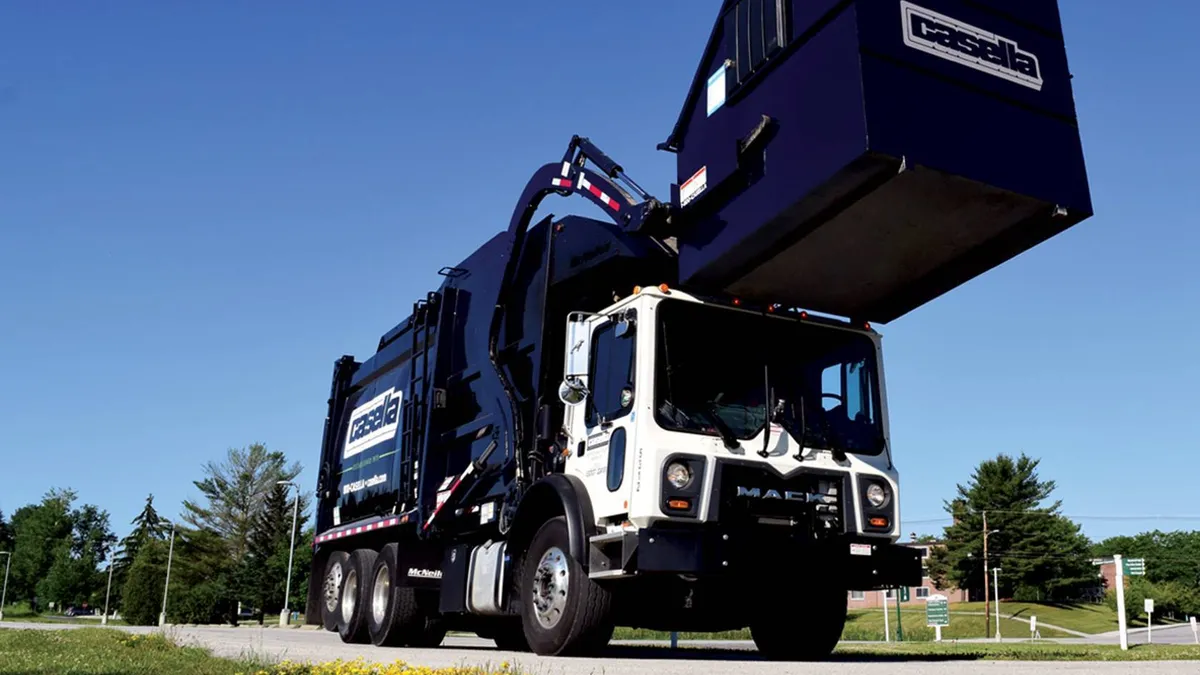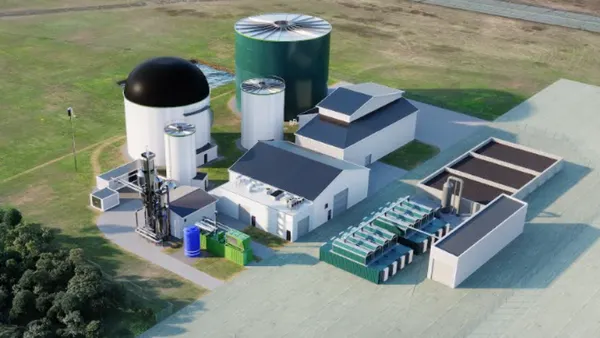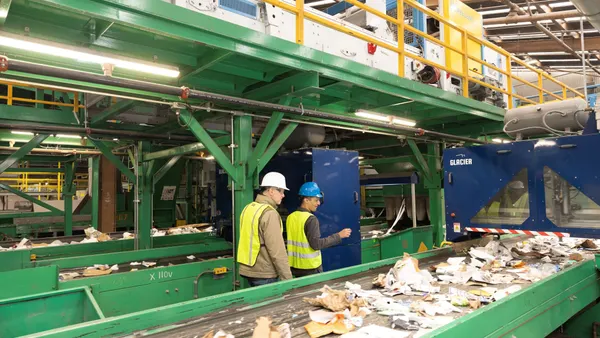Dive Brief:
- Viridi Energy has acquired an anaerobic digestion facility in Brunswick, Maine, that it plans to expand and use to process biosolids in the area, the company announced last week. Casella Waste Systems is partnering with Viridi at the site, hauling in biosolids from six wastewater treatment plants and landfilling the resulting digestate.
- The digester will process biosolids and reduce their tonnage by nearly 90%, according to a release. While it won’t destroy PFAS in the biosolids, the reduced volume is expected to ease landfill capacity concerns in Maine.
- Following renovations, the facility is expected to shrink the tonnage of a load of biosolids from 85,000 tons to 10,000 tons through digestion and drying during normal operation. It will supply electricity to the surrounding Brunswick Landing development and produce 190,000 mmBtus of RNG annually, according to Viridi.
Dive Insight:
Maine facilities have been scrambling for disposal options for biosolids in recent years, in part due to new laws designed to address concerns of per- and polyfluoroalkyl substance contamination in biosolids. L.D. 1911, signed into law in 2022, forbade the land application of wastewater sludge or compost that was produced using the sludge in Maine.
The bill was intended to address farmers’ concerns with elevated PFAS levels in groundwater near farms that spread the sludge, or biosolids, on their property as fertilizer. But with nowhere else to send the material, wastewater treatment plants were forced to send their biosolids to disposal facilities like the Juniper Ridge Landfill, owned by the state and operated by Casella.
The added wet tonnage prompted stability concerns at the landfill, and Casella began shipping the material to Canada, prompting additional outcry last year.
“What we saw with the speed with which they implemented this specific policy in Maine, it created a bit of a backlog and a logjam and, quite frankly, a major issue in terms of how we can effectively manage that” waste, said Jeff Weld, director of communications at Casella.
The crisis abated after emergency legislation allowed Casella to import more bulky waste to the Juniper Ridge Landfill, stabilizing the wet tonnage. But the new digester will further address those concerns while preserving capacity at a time when other Maine facilities that process MSW, like the former Penobscot Energy Recovery Center, remain offline.
The digestion facility acquired by Viridi Energy “never really operated” as intended, Chet Benham, president and chief operating officer of Viridi, said in an interview. Originally built by Village Green Ventures nearly a decade ago, the facility received financing from the Finance Authority of Maine in 2018 for an expansion.
Benham said Viridi’s agreement with Casella will be the “differentiator” in running the facility at maximum capacity once it is fully operational in 2026.
“We're bringing to bear engineering best practices, operational best practices, anaerobic digestion expertise, coupled with stable, consistent supply from Casella to get the project revamped and become part of the solution for Maine's biosolids challenges,” Benham said.
This is Viridi’s first biosolids-focused anaerobic digester, and the company is bringing on contractors that specialize in the feedstock for the project. The company believes this is the only biosolids anaerobic digestion facility in Maine. Following backing from Warburg Pincus and Green Rock Energy Partners, Viridi has announced several projects in the last year, including what it touts as “one of the largest waste-to-RNG” facilities in New York.
Benham and Weld declined to say if they would expand their partnership with another facility or increase feedstock at the Brunswick digester. Casella serves more than 30 wastewater treatment plants throughout Maine, and Weld said “our customers feel good about this as a solution that's coming online in the near future.”
“It really was about what is best for the whole of Maine? How can we put this material to a higher and better use now that we can no longer land apply it in Maine? This is sort of the culmination of all those stakeholders coming together,” Weld said.
He also declined to say whether the project would end the need for additional bulky waste at the landfill, noting other sludges are still being sent to Juniper Ridge. The temporary allowance for bulky waste signed by the state last year expires on July 1, 2025.











